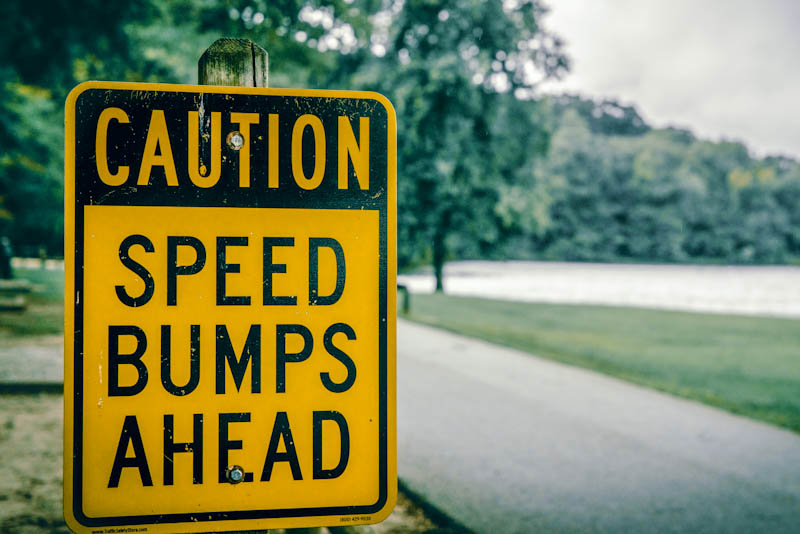What Is a Trigger?
Understand what pushes your buttons in addiction recovery, and you'll learn to save yourself a lot of stress and trouble

If sobriety is so full of possibilities, why does the world feel like a minefield? It’s a common frustration, especially in early recovery. You feel uncomfortable unless you avoid. Avoid people you used with, or people whose antics make you feel like using. Avoid places that serve or sell alcohol or other substances. Avoid sources of stress and pain — as if that’s an option.
It will get easier. But for now, your sobriety and mental well-being require you to be able to identify and navigate these troublesome little mines. There’s a name for them you may have heard: triggers.
Triggers are a gateway to the deeper wounds that we carry. They are usually uncomfortable to experience, and there’s no shame in keeping them at a distance if your recovery demands it. But leaning into your triggers can also help you better understand yourself and your needs. When you excavate the deeper meaning beneath your triggers, it can be easier to hold space for others when they may be triggered as well.
For someone in addiction recovery, being triggered can potentially lead to relapse, recurrence of use or other potentially harmful coping mechanisms. However, you can and will learn how to stay proactive about your triggers — to figure out what they are and how to manage them. It’s a process, so give yourself grace if you do happen to be sucked in by the thoughts and emotions that occur when you encounter something that triggers you.
Explainer Time: What Is a Trigger?
A trigger is essentially anything that pushes your buttons: “an action or situation that can lead to an adverse emotional reaction,” to use the definition of the National Association of Mental Illness (NAMI). Triggers are personal; everyone gets riled by different things. And people respond to triggers with a wide range reactions.
According to NAMI, four types of triggers can affect your mental health. These categories may be useful when you’re identifying your triggers in recovery from addiction or another mental health disorder. Some of them may be old nemeses, others completely new to you.
- External triggers: Caused by circumstances and situations in your environment or around the world, ranging from seeing violence on the news to watching ads for alcohol brands
- Internal triggers: Can arise when your personality, character, attachment style, mood or upbringing are threatened in current circumstances
- Trauma triggers: Similar to internal triggers, with the potential to produce more severe symptoms; based on past experiences that can bring up memories along with painful and distracting emotions
- Symptom triggers: Symptoms of another imbalance present, such as poor sleep, not meeting basic needs, etc.
In addiction recovery, a party where substances are everywhere can be an external trigger. A persistent feeling of loneliness or anxiety might be an internal trigger. Irritability owing to lack of sleep is a symptom trigger. Any of these, or a combination, can throw someone off balance or, worse, set someone down a path toward relapse.
Triggers aren’t unique to those in recovery or with mental health issues. They can affect any person at any time. We’ve all experienced things that stick with us, and you never know someone else’s life.
Although it takes some time and effort to pinpoint what causes your triggers, there is help available to guide you along in this. You can address and learn to manage your triggers so that you don’t get carried away by difficult thoughts and emotions.
Depending on the severity of your response to your triggers, there are also various traditional and holistic healthcare options you can explore to supplement your healing efforts.
I’ve Encountered a Trigger. What Now?
There are all kinds of techniques that can strengthen your emotional regulation skills for the times when you do happen to get triggered. Some of these are long-term exercises that lessen the threat of triggers, some are in-the-moment coping mechanisms and some are both. Leading a healthy lifestyle that honors your basic needs while making room for you to enjoy life will naturally help you combat your triggers.
You can learn to manage triggers by using some of the following stress management techniques:
- Getting fresh air and spending time outdoors
- Learning how to communicate with your support system about thoughts or feelings that grind your gears
- Practicing deep breathing exercises
- Moving and exercising as a regular part of your schedule
- Spending time with supportive and inspiring people
- Getting high-quality sleep
- Developing and maintaining healthy connections with loved ones and broader communities
- Establishing a practice of mindfulness or spirituality
- Getting professional support from a therapist or another licensed professional if you continue to struggle with certain stressors in your life
If you find yourself in triggering territory, walk it off, meditate, phone a friend — there are many, many options for improving your stress response when triggered. Life will hit you with triggering experiences, guaranteed, so find ways to cope that work for you. Feel free, of course, to get creative about finding practical solutions to triggering thoughts, feelings and circumstances. It’s your recovery.
Can Learning About Triggers Support My Recovery?
Understanding what can potentially trigger overwhelming and intense emotional and physical reactions can help you stay ahead of the chaos that might follow. If you’re someone who’s particularly sensitive to the world around you, understanding and working through triggers will help strengthen your mental health.
When you’re triggered, especially without knowing why or how, you are more prone to engaging in behaviors that can harm you or the people you care about. Learning what your triggers are can offer you the chance to do something about them so that you feel in control, even in challenging situations.
Working through triggers can get heavy, depending on the impact and intensity of your life experiences. Facing overwhelming or traumatic memories or situations can trigger a cascade of emotions that can be hard to handle. To avoid relapse and other counterproductive behaviors, it’s always helpful to seek professional support.
A mental health professional can offer guidance to help you process these experiences in a safe space and teach you tools to support forward movement. A professional can also connect you with resources to help you avoid harmful patterns during your recovery process.
Although it sounds simple, identifying your triggers and de-escalating your reactions when triggered takes practice and grace for yourself. Choosing to commit to improving yourself is a big feat. But as you become more accustomed to navigating addiction recovery and mental health triggers, you will see yourself managing stress and other troubles with more ease.
In time, you may be surprised by just how zen you’ve become.
More Help & Information
Does the 'Pink Cloud' of New Sobriety Help or Hurt? It's Complicated
The euphoria of early recovery may be fleeting, but long-lasting balance is the goal. Here's how to keep your head up through the process and handle reality with confidence.
Sobriety vs. Recovery: What's the Difference?
Are the concepts themselves up for debate? Do they require certain treatments, or abstinence from everything? It's complicated! And new ways of thinking are changing the conversation.
Now Elite NFL Players, They First Tackled Addiction | News Roundup
All Sober compiles the best of the latest headlines. Here's your addiction and recovery news for the week of Feb. 19, 2024!
Help Them Help You: Explaining Your Mental Health to Your Family
Your mental health can affect — and be affected by — your loved ones. Here's how to discuss it with them so everyone can heal.
Dry January (and Beyond): The Possibilities Are Endless
There's never been a better time to go sober. Whether you're trying it out this month or already living the life, join us for some tips, ideas, inspiration — and maybe even new friends.
Sober Holiday Tips: Meeting 'Share-a-Thons'
Need to get out of the house for a bit and see some friendly sober faces? Recovery support group meeting marathons run 24/7 from Christmas Eve through New Year's Day.
What Happens After an Intervention?
Your loved one agreed to get treatment for addiction during their intervention — or not. Here's what you need to know about what comes next.
We're in This Together: Building a Healthy Sober Support Network
You are the captain of your recovery, but you don't have to do it alone. A sober support network will lift you up in tough times and celebrate your triumphs.











